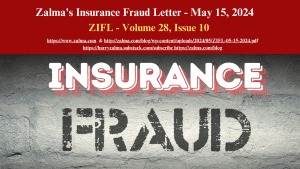Exploring the Fundamentals of Cash Value Life Insurance

Last Updated on July 15, 2023
When you begin shopping for life insurance, you’ll soon discover that there are two categories that life insurance falls into. A term life insurance and form of permanent life insurance. Term insurance is designed to provide coverage for a specific period of time such as 10, 20, 30 or 40 years. While permanent life insurance will provide coverage for a lifetime, and also include a cash value component to the policy.
Cash value based life insurance can be offered by several types of life insurance products. Whole life insurance, Guaranteed universal life insurance, Indexed universal life insurance and Variable universal life insurance are the four most common products you can choose from. For many people, having a life insurance policy that offers additional cash value can be extremely advantageous.
Here’s what you’ll want to know as you explore policies that provide cash value in addition to traditional life insurance coverage.
Quick Article Guide
Here’s what we’ll cover in this post:
What is Cash Value Life Insurance?
Cash value life insurance comprises multiple types of life insurance policies that contain a cash value account. The money you put into the insurance policy can typically earn interest or dividends and grows tax-deferred.
A portion of your premium is used to pay for the cost of life insurance, and the rest is added to the cash value portion of the policy. Moreover, you can borrow or withdraw from it while you’re alive. Many people use a loan provision to help fund a down payment on a home, or to cover unexpected expenses that arise.
Cash value life insurance provides several options for you to choose from. Each policy type accumulates cash value differently. Having an option to access cash value is a benefit that term life insurance does not provide, and only comes with permanent insurance.
Types of Cash Value Life Insurance
There are various types of policies to choose from. It’s essential to read the terms before agreeing to an insurance policy and know the difference between them if you’re considering buying cash-value life insurance. Here is more information on the policies you can choose from.
Whole Life Insurance
Whole life insurance is a life insurance policy that guarantees to remain in force for the entire insured life; as long as the premium is paid. Certain policies may even offer an increasing death benefit. This means over time, your death benefit grows, while your premium remains level.
This policy offers a fixed monthly premium, a fixed rate of growth for your cash value, and a guaranteed death benefit amount. Many whole life policies will also pay an annual dividend that is credited to your cash value account.
Whole life products are great for addressing burial costs, and funeral expenses. Knowing you have a policy to address end of life expenses is a great way to utilize a whole life policy. You do not have to worry about out living this type of life insurance.
Because of these benefits, whole life insurance is more expensive than other life insurance options.
Guaranteed Issue Life Insurance
Life insurance carriers have a history of turning down clients after they score poor results in medical exams or share adverse health information. Not every applicant will qualify for traditional life insurance.
Guaranteed issue life insurance is a policy that can’t be turned declined. If you apply for this product, you cannot be turned down. It’s appealing because you don’t need a medical exam or health questions to qualify for this insurance. However, it generally has high costs and only low amounts of coverage available. As an example, many companies will cap the life insurance they offer to $25,000 or $40,000.
Guaranteed issue life insurance may also include a cash value, but the potential cash value is small. No dividends will accumulate, and the death benefit remains level. Usually, unless the death was due to an accident, beneficiaries won’t receive the full payout if the insured person passes away within two or three years after buying the policy. Due to people being a higher risk to the insurance company, expect higher premiums and limited death benefits in the first two years of the policy.
Variable Life Insurance
This policy has permanent life insurance that has fixed death benefits. It has flexible premium paying options and the potential to earn higher than average returns as compared to other kinds of permanent life insurance.
Your cash value will be tied to ‘investment accounts’ inside the policy. As a policy owner, you’ll have lots of different investment funds to create a portfolio inside your insurance policy. Fees inside a VUL may be higher than other forms of Universal Life products, so please make sure you understand how these products work.
Universal life insurance
Universal life insurance is a form permanent life insurance. The policy is enforced for the entire insured life and often includes a cash value. There are several types of universal life insurance, some of the following include:
Indexed Universal Life Insurance
Index universal life insurance has cash value components and death benefits. It should offer flexible premiums and adjustable death benefits. Additionally, the money in your cash value account can be left to earn interest based on the stock market index your insurer chooses. These index options mimic the S&P 500 and other popular stock indexes.
These policies typically have a minimum and maximum sum to be credited to the account. Your cash value will never ‘drop’ with the stock indexes in years where the stock market is negative. Rather, it may be credited with a lower amount such as 2% or 3%.
Guaranteed Universal Life Insurance
Guaranteed universal life insurance can provide lifetime protection and carries a guaranteed death benefit. When you purchase this policy, you can tailor premium payments and payment schedules to your needs and within limits.
This policy also has the potential to accumulate cash value, but it can fluctuate over time based on how you fund the universal life insurance. The main reason most people take out these types of policies is to guarantee a death benefit for their entire life. Cash value growth will not be a good objective if choosing a GUL.
Variable Universal Life Insurance
Variable universal life insurance is a type of permanent life insurance policy that gives its clients to determine how their cash value is invested. Additionally, it has both fixed and variable death benefit options and adjustable premium payments.
Just remember, whenever you go to obtain any policy, don’t shy away from asking questions about everything, including extra information about their policies. Moreover, it’s essential to thoroughly read and understand the contracts before signing.
Ways to Use Your Cash Value Life Insurance Policy
Your cash isn’t only there for your loved ones after you pass. There are various ways for you to tap into the money while you’re alive. But keep in mind that the cash value amount of your account is built by a portion of the premium. So, it usually takes a few years to gain a significant amount from it. Once you have enough money in your account, you can access it through the following:
1. A withdrawal
With cash value life insurance, you’re allowed to withdraw money from your cash value account without repaying it back. If the withdrawal is equal to or less than the amount you paid in premiums, it won’t be taxed. But it will be taxable if it exceeds the amount you paid in premiums, meaning it includes investment gains.
Before you ever make any type of withdrawal from a policy like this, please consult with your accounting professional.
2. Loans
You can take a loan directly from your cash value life account and use it on anything you want, i.e. an emergency, supplementing retirement income or anything else. These loans are often more affordable and more accessible than using banks. Just remember to read the terms before agreeing to it.
Your loan accrues interest until it’s paid back in full. Typically, state laws dictate the maximum loan interest rate. However, if you fail to repay the loan, your insurer will deduct the balance and interest from your beneficiaries death benefit.
3. Surrendering the Policy
If you decide you no longer want or are unable to keep your life insurance policy active, you can cancel the policy. This is known as surrendering the policy. When you do this, you’ll receive the cash value minus any fees or charges your insurer may apply. This usually includes surrender charges, unpaid premiums, and outstanding loan balances.
4. Use Cash Value to Help Pay Premium
You may use your cash value money to cover the premiums. This way, you could have the privileges of life insurance without the extra expense. However, tracking your cash value in this option will be more critical. Otherwise, you might end up wiping out all the cash value accumulated and cause your policy to lapse.
Why Should you Buy Cash Value Life Insurance at an Early Age?
It’s true that not every adult requires life insurance. Especially if you don’t have any extra funds, but if you do have it, you should know that life insurance is usually cheaper when you’re young and healthy. Even if you haven’t started a family yet, the benefits of cash-value life insurance will have many self-benefits that can be helpful in your life. Additionally, the low costs can be favorable for when you start your own family in the future.
Your life insurance premiums will partially be determined by your age, and health at time of applying. Because of this, your life insurance rates will never be less expensive than they are at this very moment. The cost of waiting to obtain a policy may cost you financially should you wait too long.
Advantages and Disadvantages of a Cash Value Life Insurance Policy
Everything in life has its pros and cons. Whether this life insurance is right for you depends on why you want it and if the benefits outweigh the cons.
Advantages:
1. It has a variety of options that can best suit your interests
2. Your loved ones receive a one-time financial support
3. Provides an investment account
4. You can borrow and withdraw the funds whenever you want
5. Can use the cash value to help pay the premium
6. Gain tax cuts
Disadvantages
1. You need to fully understand the terms and conditions before signing
2. Cash Value can take time to build
3. It costs more than term insurance
4. Your policy could lapse if you borrow too much
5. You’d be taxed for surrendering the policy
Conclusion
Cash value life insurances allow you to save money for yourself and your loved ones, benefit from using them, and accumulate money on a tax deferred basis. Cash Value insurances contain different policies to choose from, and you can find ones that are more suitable to your needs by speaking with a license insurance agent. Feel free to contact us with assistance in choosing the best policy for your financial objectives.






